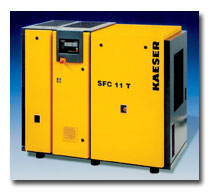L
oking back at 2005, mill managers agree business was surprisingly strong in the first
half of the year, and July was the turning point — one that led to a more lackluster second half. A
sluggish third quarter was followed by a better — at least by comparison — fourth quarter.
“Business was miraculously good at the start of the year,” commented one industry observer. “
It was incredible how good it was, particularly given the Jan. 1, 2005, quota phaseout. The biggest
reason the yarn business started out so strong was … the economy was just booming.”
One specialty spinner described his business as very sporadic since September, with brief
periods of decent order bookings and very active delivery quotations that “increasingly failed to
materialize into orders.”
Spinners have a positive short- to mid-term outlook for 2006. “I expect the first half of ’0
6 to be similar to the first half of ’05,” said a specialty ring spinner. “Our export business
continues to grow. It appears … US retailers will continue to support Central American vendors, and
that certainly works to our advantage.”
Mill executives’ long-term outlooks are tempered by uncertain business conditions and
increasing imports. One spinner mentioned a customer that temporarily ceased operations and noted
some weavers are exiting the bottomweight business. Another spinner reported closing at least one
spinning plant as an adjustment to decreased demand. Military business also seems to have dipped a
bit lately.
One multisystem spinner saw little chance of growth in 2005 and expects further consolidation
within the US spinning fraternity in 2006.
“We will continue to see pressures on the pricing side, and I hope … cotton prices continue
to be low or at least consistent,” he said. “I think it would be wrong to anticipate growth. I don’t
think we are finished with consolidation. As our customers move down to Central America and shut
down US operations, you’re going to see some spinners moving down there as well.”
Running Conditions Normal But Seasonal
At the time of this writing, spinners were in typical holiday slowdown mode. One reported
running his operations five to six days a week, but said he couldn’t build much of a backlog.
Another spinner used the term “mixed bag,” noting most of his plants are running well and a
specialty plant is on a reduced schedule. All of the spinners polled mentioned the traditional
one-week holiday shutdown of most plants. Business outlooks remain week-to-week for spinners, or “
from now to next Wednesday.”
Looking For Fiber Prices To Decrease
Spinners see some signs man-made fiber prices may get better in 2006. One noted chem-ical
data indexes remain unchanged, which should indicate polyester prices will stay the same or maybe
go down.
“I think fiber producers will keep prices higher than they started off last year, but … most
of the surcharges will be rolled off by the first of the year,” said a multisystem spinner. “They
want to try to get fiber prices back into a competitive state so they can sell more fiber
internationally.”
Staying Competitive
Yarn prices continue to remain competitive and under pressure.
“Typically, the stability of specialty yarn pricing is important for program business,”
observed one specialty ring spinner. “Increasingly, business consists of smaller orders for
near-term delivery, which requires us along with our customer/partner to become competitive with
imported fabric.”
“The opportunities for our customer — the apparel manufacturer — [are] dependent on response
to market,” he continued. “Competitive speed is the catalyst for near-term business, and we, as a
raw material supplier, are an important component to this business development. Everything must be
done with more efficiency.”
Spinners looking for a New Year’s resolution might heed the advice of one industry observer,
who suggests looking for new products, new markets and, most importantly, a new business model.
January/February 2006





